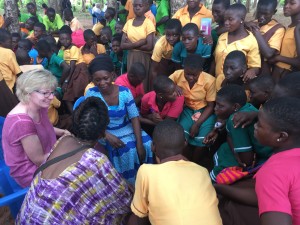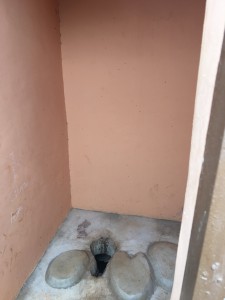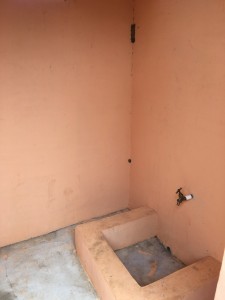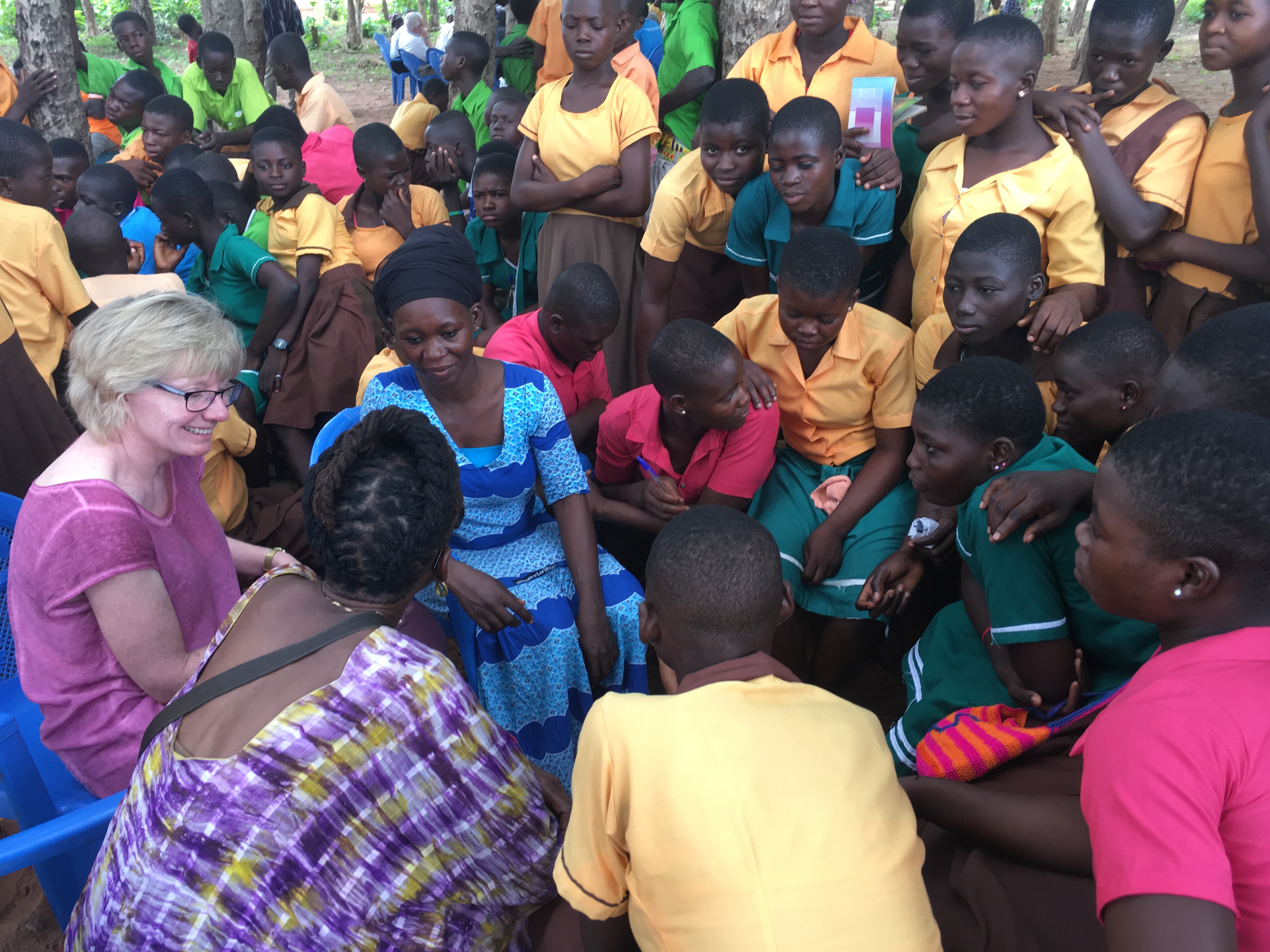Just as mosquito nets or polio vaccines are essential for keeping families healthy, free menstrual pads should be viewed in the same way.
Kelly Parsley, chair of public health sciences at Carroll College (Montana) and chair of the Lewis and Clark County Board of Health, came to that conclusion after visiting villages in the northern region of Ghana and speaking with girls as they reach puberty and experience menses.
“I know that the idea of purchasing a disposable pad for these girls as they go through their periods seems extravagant and seems like a luxury, but when we think about the independence that comes for a young woman, because she’s able to stay in school, get a good education, perhaps get a good job or go to college, we are looking at something very fundamental in improving these communities,” Parsley said.
She said she was really impressed with the determination of people in the villages she visited to keep girls in school. The villages are building latrines with changing rooms for girls and hope to add a method for girls to dispose of pads properly. The latrines are pit latrines that over a three-year span can compost the human waste. Disposing pads in the latrines would make composting more difficult. These villages have also added wells at the schools to provide clean water. (There’s interesting innovation going on around the world such as micro-enterprise businesses in India that make organic tampons.)
The villages Parsley visited were part of 138-village project where Catholic Relief Services is working with the local health and education departments to improve water, sanitation, and hygiene.

The cost of menstrual pads is an obstacle for girls to stay in school. One pad would cost a girl or her family the equivalent of 25 cents. This is in a region where where people are at or below the level of extreme poverty in which people earn $1.25 a day or less. If a girl goes through two or three pads a day and if her period may last up to seven days, it is easy to see how unaffordable menstrual pads can be. But free tampons or pads are controversial.
All over the world in poor countries, girls tend to not attend school on those days when they are menstruating. This leads to falling behind in school and, for some, dropping out.
Parsley was further encouraged by what she saw. The latrines that the villages built were clean and had private rooms for girls’ and boys’ toilet and an additional room for for girls for changing and cleaning.
“What we know in public health, the better their chances of economic independence later on. All of our efforts about menstrual hygiene are really about independence, the economics of that community, a better educated family for the next generation, so all good things are coming from this work,” Parsley said.
Parsley compared her culture and the experience of American girls she knows who often go through puberty privately and discuss her coming of age with just a small group of friends and her mother. Here in Ghana Parsley found communal support.
“The girls told us they were proud to get their periods and that they felt very supported by their communities, and I love that is the kind of community relationship and family relationship that they come from,” Parsley said.



